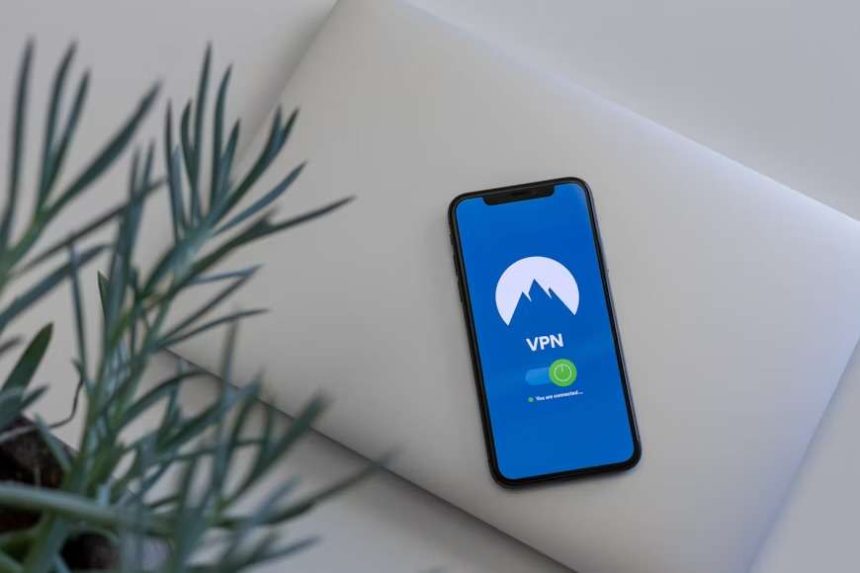In 2025, with data breaches, identity theft, and surveillance on the rise, more people are asking: Do I really need a VPN?
While once considered a niche tool for techies or corporate workers, Virtual Private Networks (VPNs) have gone mainstream. But what role do they actually play in cybersecurity? Are they essential, or just another app clogging your phone?
Here is how VPNs work, their role in cybersecurity, and whether you actually need one to stay safe online in 2025.
What Is a VPN?
A VPN (Virtual Private Network) is a cybersecurity tool that creates a secure, encrypted connection between your device and the internet. Think of it as a digital tunnel: it hides your online activities from third parties such as hackers, your internet service provider (ISP), or even government surveillance.
When you use a VPN, your internet traffic is rerouted through a secure server, and your IP address is masked. This makes it difficult for anyone to trace your online actions or intercept sensitive data.
How VPNs Work in Cybersecurity
VPNs are essential for enhancing privacy and protecting data from cyber threats, especially on public or unsecured networks.
For instance, when you connect to free Wi-Fi at an airport or café, a VPN encrypts your activity so hackers nearby can’t steal your information. In the broader cybersecurity ecosystem, VPNs act as one of several defences in your digital armour.
While they don’t protect against viruses or phishing scams, they do prevent data snooping, traffic analysis, and geographic tracking, common tactics used in cybercrime today.
The Importance of VPNs
As cyber threats evolve and data tracking becomes more aggressive, VPNs (Virtual Private Networks) have become essential tools for individuals and businesses alike.
In 2025, using a VPN isn’t just about hiding your IP address, it’s about protecting your digital freedom. Here’s why VPNs are more important than ever this year:
1. Protection on Public Wi-Fi
Public Wi-Fi networks in cafés, airports, and hotels are often unencrypted, making it easy for hackers to intercept your data. Without a VPN, any sensitive information you send, like passwords or banking details can be stolen by someone nearby using basic tools.
A VPN encrypts your connection, even on unsecured networks. This keeps your data hidden from prying eyes, making it safe to browse, shop, or work remotely without fear of being spied on.
2. Bypassing Censorship and Content Blocks
In some regions, access to websites, social platforms, or news sources is restricted due to government censorship or geographic content blocks. VPNs allow users to connect through servers in other countries, bypassing those limitations.
This is especially useful for journalists, students, or professionals who rely on global platforms for work and research. With a VPN, the internet becomes an open space again, regardless of where you are.
3. Enhancing Online Privacy
Today, your online behaviour is tracked constantly by websites, advertisers, apps, and even your internet provider. VPNs mask your real IP address, making it harder for companies and bad actors to build a detailed profile of your activities.
In a time when personal data is sold, leaked, or stolen daily, VPNs act as a privacy shield. They give you more control over who sees your data and how it’s used.
4. Secure Remote Work
With hybrid and remote work now permanent across many sectors, secure online access is critical. Employees often use personal devices and home networks that lack enterprise-grade security.
A VPN allows remote workers to safely access company systems without exposing sensitive files or client data. It’s an essential cybersecurity layer for any business managing a distributed workforce.
5. Safer Financial Transactions
Online banking, crypto trading, and e-commerce are common in 2025, but they also attract cybercriminals. A VPN helps protect your financial activities by encrypting data transmissions, making it harder for attackers to intercept logins or steal transaction details.
Even on trusted platforms, using a VPN adds a layer of defence. It ensures that your money-related information stays between you and your bank, exactly where it belongs.
How to Choose a Good VPN
Not all VPNs are created equal. Many free VPNs collect and sell user data or lack proper encryption. To protect your cybersecurity, choose a VPN that offers:
- No-logs policy: It doesn’t record your browsing activity
- Strong encryption: Uses 256-bit AES encryption or higher
- Multiple servers: Across several countries for speed and flexibility
- Kill switch: Automatically blocks internet access if the VPN disconnects
- Cross-platform support: Works on mobile, desktop, and routers
Popular VPN Options in 2025
With online threats rising and data privacy becoming harder to protect, choosing the right VPN is more important than ever.
In 2025, users have access to a wide range of VPNs that offer strong encryption, fast speeds, and privacy-focused features. Below are reliable VPN services that continue to stand out this year:
1. NordVPN
NordVPN remains one of the most trusted names in the VPN industry. It offers military-grade encryption, a strict no-logs policy, and over 6,000 servers across 60+ countries. With features like Threat Protection and Double VPN, it adds extra layers of security for advanced users.
In 2025, NordVPN is popular among remote workers and frequent travellers who need consistent performance and access to global content. Its easy-to-use interface and 24/7 customer support make it ideal for both beginners and tech-savvy users.
2. ExpressVPN
Known for its blazing-fast speeds and user-friendly apps, ExpressVPN is a favourite among streamers and digital nomads. It supports a wide range of platforms, including Windows, Android, iOS, routers, and even smart TVs.
ExpressVPN’s TrustedServer technology ensures all data is wiped after every reboot, boosting privacy. In 2025, it continues to deliver reliable access to global websites and is widely recommended for bypassing censorship and regional content restrictions.
3. ProtonVPN
Developed by the team behind ProtonMail, ProtonVPN focuses on privacy and transparency. It operates under Switzerland’s strong privacy laws and offers a free tier with no ads or data limits, something rare in the VPN space.
ProtonVPN is a top choice for users who value open-source tools and independent audits. In 2025, it’s especially popular among journalists, researchers, and students who need secure access without breaking the bank.
4. Surfshark
Surfshark has rapidly grown into a well-rounded VPN provider offering unlimited device connections on a single account. It provides clean and intuitive apps, strong encryption, and extras like ad-blocking and malware protection.
For families, small teams, or users with multiple gadgets, Surfshark is cost-effective and dependable. Its fast-growing server network and budget-friendly plans make it a leading choice in 2025 for everyday internet users.
5. CyberGhost
CyberGhost is known for its user-friendly setup and servers optimised for specific activities like streaming or torrenting. It boasts over 9,000 servers worldwide and allows up to seven simultaneous connections per subscription.
In 2025, CyberGhost remains a go-to VPN for people who want a hassle-free way to stay secure online without digging into complex settings. Its dedicated streaming profiles and automatic kill switch provide peace of mind for both casual and active users.
Are VPNs Necessary in Nigeria?
For Nigerian users, VPNs are increasingly valuable. From online banking to remote work, more people are relying on cloud-based services and mobile data. Unfortunately, cybercrime is growing alongside this adoption—SIM swap fraud, fake apps, and phishing are now widespread.
Using a VPN is especially important if:
- You use public Wi-Fi often
- You travel frequently
- You work remotely with sensitive documents
- You want to avoid location-based content restrictions
- You’re concerned about data privacy and government surveillance
In short, a VPN helps Nigerian users take back control of their privacy in an insecure digital environment.
Frequently Asked Questions (FAQs)
What is VPN and its uses?
A VPN (Virtual Private Network) hides your IP address and encrypts your online activity. It’s used to protect privacy, bypass content restrictions, and secure internet access on any network.
How important is a VPN?
In 2025, a VPN is essential for anyone using public Wi-Fi, handling sensitive data, or concerned about digital privacy. It’s a simple tool that adds strong protection to your online life.
How does a VPN protect you?
A VPN scrambles your internet traffic so hackers, your ISP, or other third parties can’t see what you’re doing online. It keeps your personal info and activities hidden and secure.
Does a VPN make me completely anonymous online?
No. A VPN hides your IP and encrypts data, but websites, cookies, and even browser fingerprints can still track some activity. For true anonymity, you’d need tools like Tor in combination with strong privacy practices.
Are free VPNs safe to use?
Most free VPNs are risky. They often track users, show ads, or leak data. Choose a reputable provider with transparent policies and strong encryption.
This story was first published by Strategy Innovations Hub.





